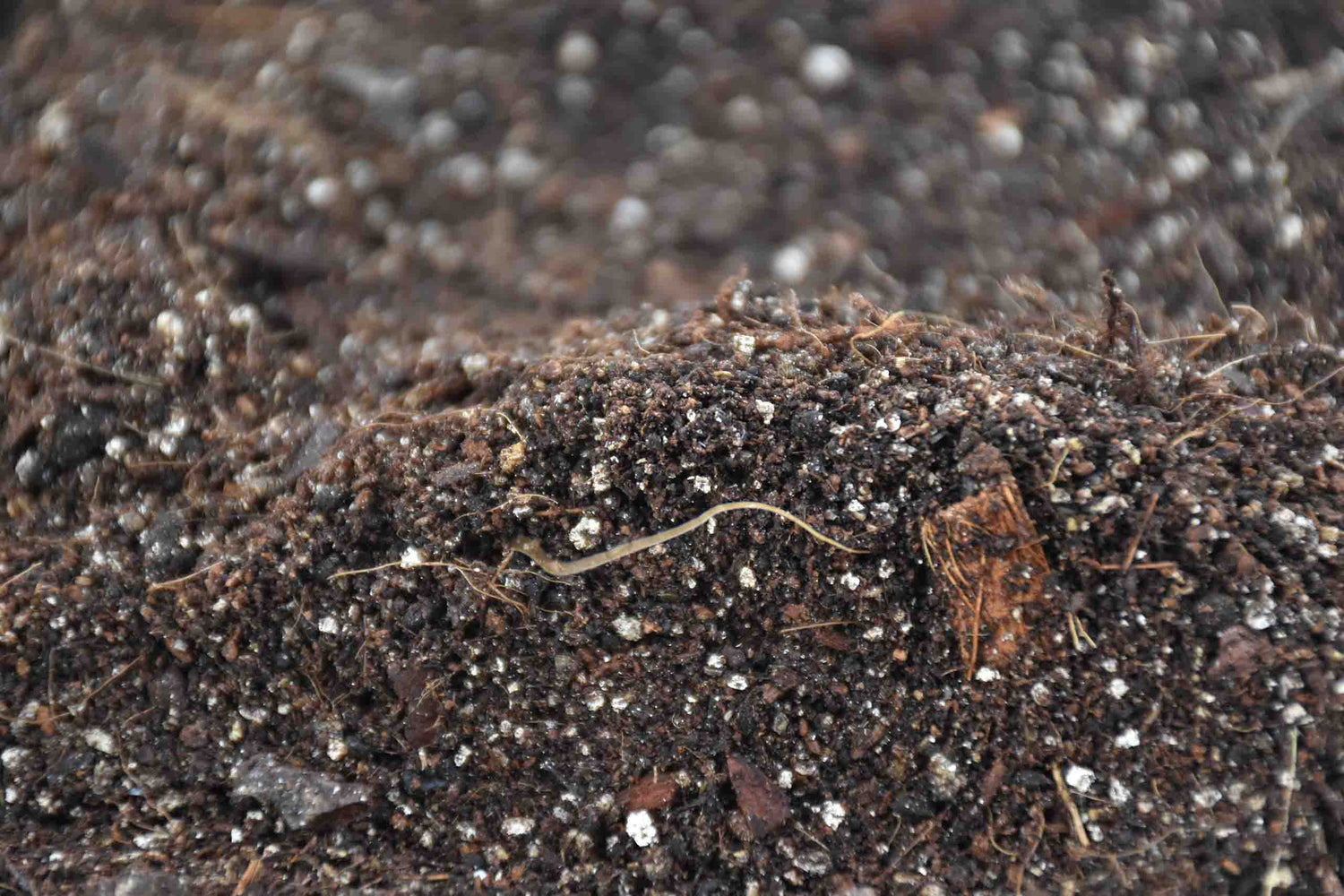Vermiculite! This soil additive is worth its weight in gold when used correctly. From seed germination to water retention, learn more about this interesting mineral
Why Use Vermiculite?
Advantages:
- Improves drainage
- Improves aeration
- Improves water/nutrient retention & spreads it around the soil evenly
- Incredibly versatile
Disadvantages:
- Holds more water than its counterpart, perlite, which can increase the risk of root rot for plants with more sensitive root system
Since vermiculite holds more water, some plants may struggle with overly damp roots. You can read about how to avoid root damage if this becomes a concern.
What Is Vermiculite?
Vermiculite is an inert, inorganic mineral. It is mined worldwide, in places like Russia, Australia, Brazil, and the USA. Like perlite, it is made by heating the raw vermiculite. This causes it to expand and become porous.
Perlite, on the other hand, is also widely used in soil mixes but serves a slightly different purpose. Find out what makes perlite unique.
How to Use Vermiculite
Vermiculite as a Soil Additive
Vermiculite is best as a soil additive for moisture-loving plants, like Alocasia.
Vermiculite as a Seed Germination Medium
Vermiculite retains moisture and distributes it evenly throughout a container. This makes it a great seed starter.
Vermiculite to Store Roots and Bulbs
Vermiculite is a great tool to store bulbs from plants, like Caladiums and Stephanias. The vermiculite keeps the temperature and moisture stable. It also blocks harsh light that could scorch the bulbs.
Vermiculite as a Mushroom-Growing Substrate
Vermiculite is often used in the mushroom-growing space as a substrate.
Want to learn more about how vermiculite supports healthy plant growth and soil balance? You can find detailed answers in our vermiculite FAQ section.
Vermiculite v.s. Perlite
While both are inorganic, inert, and lightweight. There are a couple of differences between the two. Simply put, vermiculite holds more water and has a slightly higher PH than perlite. For most plants, perlite is best. But, for water-loving plants like the Alocasia, vermiculite is better. Vermiculite is not dusty. Unlike perlite, it poses no danger of inhaling its particles. Learn more about the key differences between perlite and vermiculite.
If you’d like to experience its benefits in your own soil mix, you can buy our vermiculite.


